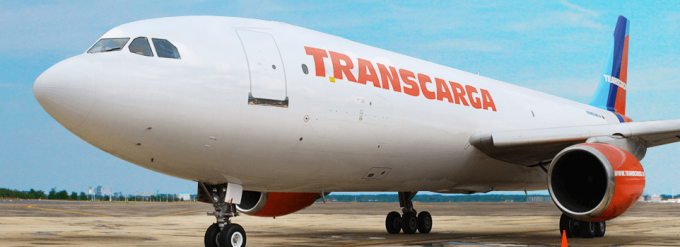For forwarders, 'a hot Q4' will be all about controlling air cargo capacity
“Capacity is going to be king for the rest of 2024.” That’s the word from forwarders ...

Centurion and Amerijet have successfully hampered Venezuelan carrier Transcarga’s attempts to operate in the US by objecting to the US Department of Transport over its traffic rights.
The moves, claimed Transcarga, leave the routes available only to US carriers, and now open to substantial price hikes.
Transcarga had applied to operate extra-bilateral all-cargo charter operations from 15 November 2016 through 31 January 2017. It wanted to operate 16 monthly round-trip all-cargo charters in the Venezuela-Aguadilla/San Juan market; 76 monthly round-trip all-cargo charters in the Venezuela-Houston/Miami market; and eight monthly round-trip all-cargo charters in the Venezuela-New York market.
But Centurion and sister company Sky Lease argued Venezuela does not provide adequate reciprocity for US cargo carriers. They also claimed that Venezuela’s aviation authority, INAC, was distorting the US-Latin America market by refusing to allow US carriers to transport US-third country traffic via Venezuela. Amerijet agreed, while INAC failed to respond in time.
However, Transcarga argued that between July and August, 2016, US carriers operated 141 charter flights between Venezuela and the US, of which at least 128 were cargo charters. It added that INAC approved at least an additional 61 US cargo charters for the period of October-November 2016, providing sufficient reciprocity for Transcarga to continue to operate at least through the end of the year.
As the only Venezuelan cargo carrier, Transcarga also argued that it should be allowed to operate to the US, and it employed 35 US citizens in Miami whose jobs would be lost if it could no longer operate there.
It claimed prices would go up for shippers. It argued that Amerijet had increased prices on the Miami-Las Piedras route by nearly $1 per kilo, although Amerijet disputed that its prices had risen.
There is little love lost between the carriers. Transcarga is involved in a commercial suit against Centurion and Sky, and claimed that was the true motivation behind those carriers’ objection to Transcarga flights.
A Centurion insider recently told The Loadstar that Venezuelan nationals have a stronghold within Centurion and Sky Lease, and other nationalities have complained of discrimination at the two Miami-based carriers.
Comment on this article
Julio J. Marquez
January 14, 2017 at 3:55 pmUnfortunately, DOT did not grant Transcarga Intl. Airways, C.A.’s non-scheduled all-cargo authorizations from November 15, 2016 due to objections filed by three (3) US carriers which, in our opinion, were only filed because of commercial and competitive considerations. Due to these unfounded arguments, the DOT denied our authorizations, largely based on one of the objections: the alleged discrimination of fees imposed by the INAC for non-scheduled all-cargo authorizations on foreign carriers as opposed to Venezuelan carriers. According to these US airlines, this difference in fees, that do not exceed US$500, is affecting their finances, but this seems ludicrous to us if you take into account all the other operating costs and expenses.
We strongly believe that the representatives of these US carriers in Venezuela could have discussed this issue regarding differences in fees directly with the Aeronautical Authority that controls and regulates civil aviation in Venezuela (INAC) or, at any time, they could have made all reasonable efforts to explain to both country´s Civil Aviation authorities the background and cause for their complaint, so the DOT and the INAC could reach an agreement, since the problem they address is solely at governmental decision-making levels, instead of attacking the only Venezuelan all-cargo carrier operating the US-Venezuela market by restricting its operations to US.
The commercial objectives that prompted these objections overcame any logical reasoning and the DOT, without looking beyond these unfounded arguments, made a decision that created a monopoly on the US-Venezuela routes in favor of the US carriers. There are currently nine (9) US carriers covering these routes as opposed to only one Venezuelan carrier competing against them, up until November 14, 2016 (Transcarga). The Venezuelan government grants more than one hundred (100) monthly flight permits to these US carriers whilst at the present time US authorities are not allowing the only Venezuelan carrier even a single flight to the US.
The door is still open for us, though. DOT has stated that will accept a new application from Transcarga in the following months, subject to providing proper evidence that reciprocity and equality with respect to authorization fees is presented.
The most interesting and surprising part of this situation is how these US carriers chose to undermine the INAC’s reputation by making allegations of discriminatory treatment and lack of reciprocity while, in the meantime, they have never stopped enjoying the benefits of operating freely in the US/Venezuelan market.